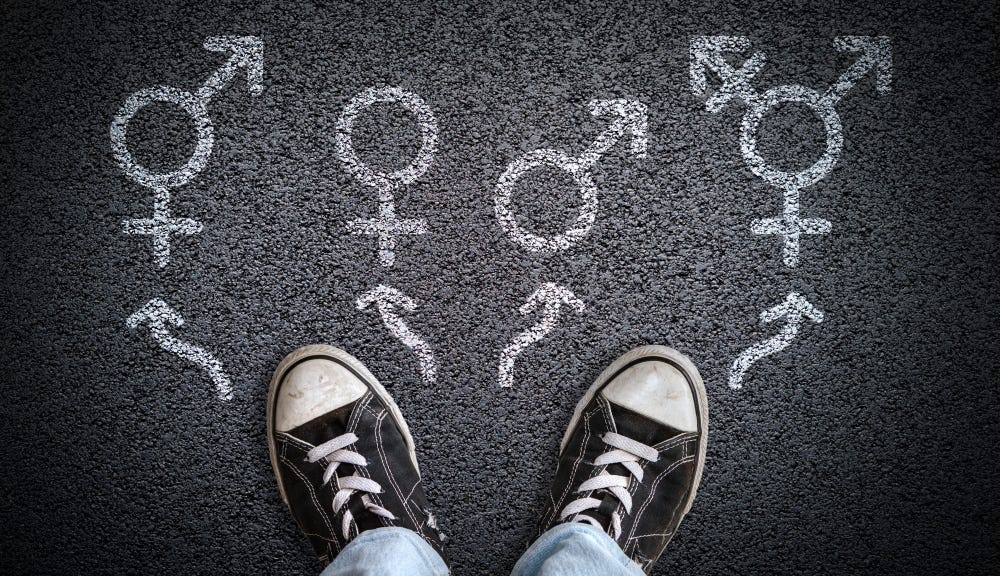E-Pluribus | February 28, 2022
Is there an American Identity, how hate speech laws go wrong, and the cult of gender ideology continues to make inroads in education.
A round up of the latest and best writing and musings on the rise of illiberalism in the public discourse:
Benjamin Klutsey (with Samuel Goldman): Myths of American Identity
At Discourse Magazine, Benjamin Klutsey of the Mercatus Center at George Mason University interviews George Washington University professor Samuel Goldman regarding his recent book, After Nationalism: Being American in an Age of Division. Among other things, Klutsey and Goldman discuss the concept of an “American identity” and how that idea conflicts with the reality of our disparate population.
[O]ur tendency is to seek generality and agreement. Then we get very frustrated when that doesn’t happen because it turns out that people don’t agree with us. On the contrary, I would tend to go in the other direction, not to cultivate disagreement for its own sake or to be provocative, but rather to pose what I again think of as a perennial American question, which is, how can people who don’t have all that much in common live together in peace?
On the one hand, that may require weakening or decentralizing certain powers from the federal or national level—or even from the state level—to permit cultural, religious or other communities to more consistently and effectively live in their own ways and according to what they believe. On the other hand, that means strengthening those communities and making sure that they are permitted, by law, to operate in ways that are satisfying to them.
In the book, among other things, I express a certain skepticism about the application of sweeping anti-discrimination mandates to religious communities. Because I think it’s quite important that religious communities be able to operate not only as houses of worship, but also as sets of social institutions—schools, hospitals, social service organizations, and so on—in ways that reflect what they really believe, rather than trying to turn them into vehicles of an ostensible national consensus.
We need to go small in certain ways, and then we can ask again what we have in common, and what our truly shared interests are, rather than trying to settle them, as I say, through periodic elections, and especially presidential elections every four years. I just don’t think our institutions can bear that weight. If you think the fate of the nation, one way or the other, rests on the occupant of the White House, you are almost certainly going to be disappointed.
Read it all.
Nick Gillespie and Regan Taylor: Why Hate Speech Laws Backfire
Nick Gillespie and Regan Taylor of Reason have produced a video on the tendency of hate speech laws to backfire, whatever the good intentions may have been. As distasteful as some speech is, exposure rather than suppression is on balance still the best way to inflict long-term damage on hateful and harmful ideologies.
Europe's history with such [hate speech] laws argues against them. In the 1920s, Germany's Weimar Republic strictly regulated the press and invoked emergency powers to crack down on Nazi speech. It censored and prosecuted the editor of the anti-Semitic Nazi paper Der Stürmer, Julius Streicher, who used his trial as a platform for spreading his views and his imprisonment as a way of turning himself into a martyr and his cause into a crusade. When the Nazis took power in the early '30s, Mchangama stresses, they expanded existing laws and precedents to shut down dissent and freedom of assembly.
Contemporary scholarship suggests that there can be a "backlash effect" when governments shut down speech, leading otherwise moderate people to embrace fringe beliefs. Mchangama points to a 2017 study published in the European Journal of Political Research that concluded extremism in Western Europe was fueled in part by "extensive public repression of radical right actors and opinions."
In 1965, the United Kingdom passed a law banning "incitement to racial hatred," but one of the very first people prosecuted under it was a black Briton who called whites "vicious and nasty people" in a speech. More recently, Mchangama notes that radical feminists in England "have been charged with offending LGBT+ people because they insist there are biological differences between the sexes. In France, 'an LGBT+ rights organization was fined for calling an opponent of same-sex marriage a 'homophobe.'"
"Once the principle of free speech is abandoned," warns Mchangama, "any minority can end up being targeted rather than protected by laws against hatred and offense."
Read it all here.
Abigail Shrier: The Gender Cult Marches On
Despite the growing awareness of and resistance to some of the more radical applications of gender ideology, some educators and activists are plowing ahead, injecting their doctrine into the curriculum of younger and more vulnerable age groups. Shrier writes that parents especially must learn to ignore their detractors who will paint them as insensitive Neanderthals and simply fight for their children.
The Gender Ideology and Critical Race Theory program pushed on American children is far more ambitious than that of almost any parochial school: The relentlessness is cult-like. The activists see Special Needs kids as pliable recruits. They view any break from indoctrination as wasted opportunity.
Just yesterday, a public high school teacher in Texas told me that despite the recent legislative ban on Critical Race Theory in public schools, administrators at his school continue to supply teachers with lessons on Critical Race Theory and Gender Ideology disguised as “Social Emotional Learning.”
“In Texas, you’re not supposed to be teaching any Critical Race Theory, you’re not supposed to be teaching any of this gender stuff in class,” he said. “It’s one of the bills that was passed in the last session.” But just this week, an administrator sent him materials from LGBTQ activist organization, GLSEN, and directed him to teach it in his class.
Angry parents at School Board Meetings may captivate Americans across the political spectrum, but the activists see them as an irrelevant nuisance—a reason to reinsert their noise-cancelling AirPods. The activists are not open to debate, discussion or moderation. And like many a cult-leader, they are immune to feedback from the parents of their young recruits. They must be pushed out of the school system; they cannot be persuaded.
Read the whole thing.
Around Twitter
From Inside Higher Education, the state of academic freedom in Great Britain, via Heterodox Academy:
Yascha Mounk with an observation about the importance of open debate and listening to minority viewpoints (and Mitt Romney would likely agree):
And finally, Peter Boghossian with a note of optimism regarding Russia and Ukraine:










